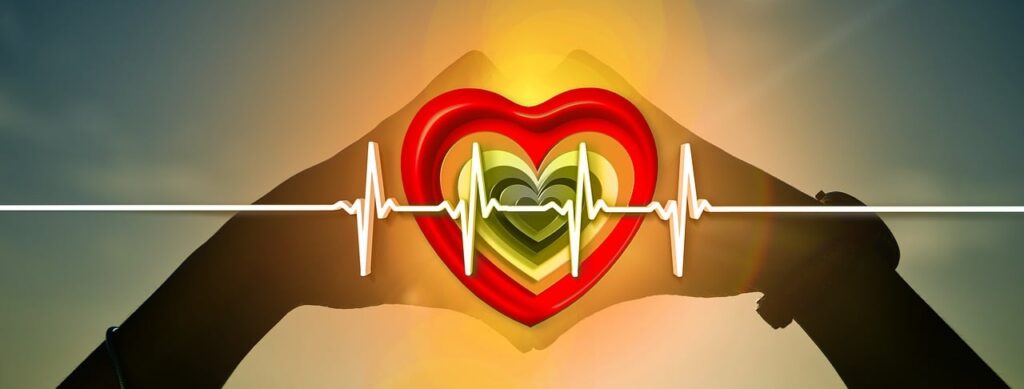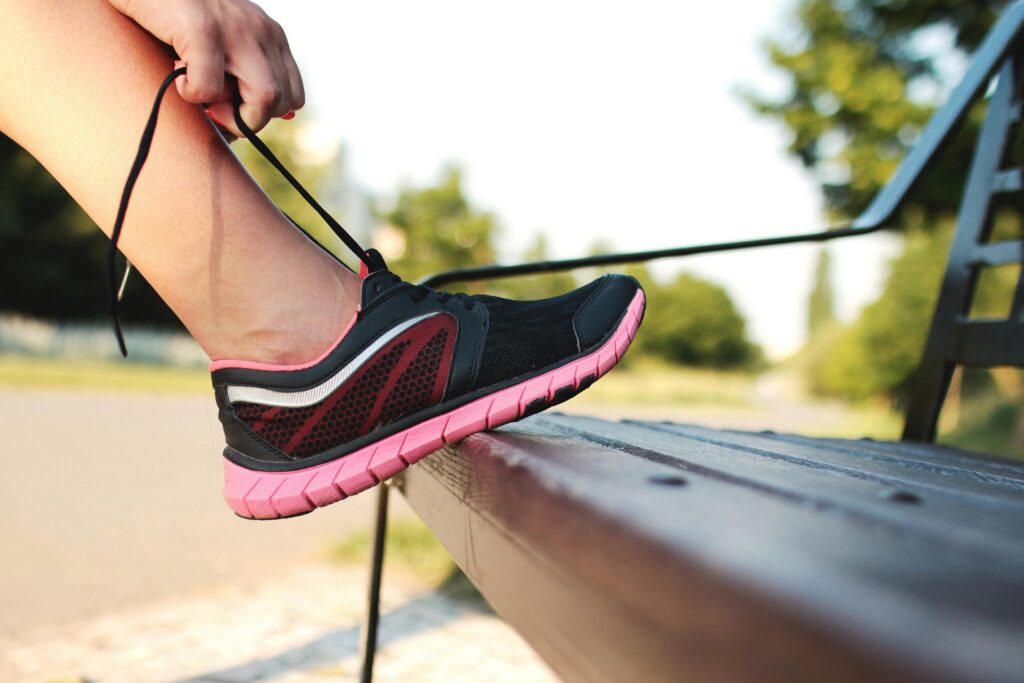You’ve probably felt it. That moment when your heart races in traffic or conversely when a fleeting scent takes you back and you feel your heart rate slow, your body calming down. The rhythm you feel is more than just a heart beat; it’s your nervous system communicating. And now we have an easily measurable way to listen: Heart rate variability (HRV)

What is HRV?
HRV refers to the variation in time between each heartbeat. Instead of ticking like a metronome, a healthy heartbeat is flexible and responsive. Higher variability between beats means your body is better able to switch between “fight-or-flight” (sympathetic) and “rest-and-digest” (parasympathetic) states. In functional medicine, we see HRV as a vital window into the health of your nervous system, stress response, and overall adaptability.
HRV and Resilience
Resilience refers to your body’s ability to recover after a stressor. You see, some stress in your system is beneficial. In the same way that exercise helps tone muscles, controlled stressors help strengthen your resilience and adaptability through a process called hormesis. These mild stressors stimulate various protective mechanisms throughout the body and can be measured through an increase in the HRV.
A higher HRV often reflects:
- Greater emotional regulation
- Better sleep quality
- Improved recovery from physical or mental stress
- Reduced inflammation
- Enhanced parasympathetic tone (your “rest-and-recover” mode)
Lower HRV? That can indicate chronic stress, poor recovery, and nervous system dysregulation. All areas where functional medicine can offer support.
What Affects HRV?
The good news is that there are myriad ways to improve your HRV and consequently improve your ability to act under pressure. Improving even one or two of these areas can lead to a marked improvement in health and well-being.
Circadian Rhythm and Light Exposure
How it affects HRV: Exposure to natural light in the morning helps entrain circadian rhythms
- Poor sleep hygiene (late screens, shift work, irregular schedules) blunt the natural rhythm and suppress HRV
- Improved circadian rhythm improves hormone regulation, sleep quality and balances the nervous system, all of which are reflected in HRV scores
☀️Tip: Set a consistent wake/sleep time and be sure to get outside first thing (sans sunglasses and sunscreen) for 10-15 minutes
Nutrient status (especially magnesium, B vitamins, omega-3s)
How it affects HRV: A nutrient-dense, anti-inflammatory diet supports vagal tone, balances blood sugar, and reduces oxidative stress leading to higher HRV
- Dietary patterns high in sugar, ultra-processed foods or inconsistent meal timing) can lead to metabolic dysregulation, gut inflammation, and reduced parasympathetic activity—lowering HRV.
🍽️ Tip: Build meals around whole foods, healthy fats, and protein to support steady energy and nervous system balance.

Stress (emotional, physical, environmental)
How it affects HRV: Chronic psychological stress increases cortisol and sympathetic nervous system activity, which suppresses HRV.
- Acute stressors (anxiety, overwhelm, toxins, etc.) will show an immediate HRV drop.
- Impact on resilience: High baseline HRV is associated with better emotional regulation, adaptability, and quicker return to baseline after stress.
🌬️ Tip: Breathwork, meditation, and even 2–3 minutes of mindful stillness can elevate HRV almost immediately.

Exercise & Movement
How it affects HRV: Moderate exercise improves HRV over time by strengthening vagal tone and cardiovascular fitness.
- After intense workouts, HRV may drop temporarily, indicating recovery is needed.
- Impact on resilience: A body that adapts well to physical stress (as seen in HRV rebound post-exercise) is more resilient to all forms of stress.
🧠 Tip: Track HRV trends after exercise to avoid overtraining and optimize recovery days.
Alcohol Intake & Dehydration
How it affects HRV: Alcohol inhibits REM sleep and parasympathetic activity; dehydration affects blood volume and vagal signaling.
- Alcohol acutely lowers HRV for up to 24 hours (even small amounts), by disrupting sleep and increasing sympathetic output.
- Dehydration increases cardiovascular strain and can suppress HRV, especially in active individuals.
🍷 Tip: When drinking, do so in moderation and stay well hydrated. Optimal hydration varies depending on temperature, activity level and individual. Aim for an 8 ounce glass for every 15 lbs body weight (150 lbs = 10 cups water).
Connection & Emotional Well-being
How it affects HRV: Healthy relationships buffer the effects of stress, lower systemic inflammation, and improve long-term cardiovascular and mental health.
- Positive emotional states (gratitude, love, connection) increase parasympathetic activity and raise HRV.
- Loneliness, resentment, and emotional suppression lower HRV and correlate with poorer health outcomes.
🤝 Tip: Make space for intentional connection—whether through a shared meal, phone call, walk with a friend, or even brief moments of eye contact and kindness. These small acts literally regulate your nervous system.
If you’re feeling socially depleted, even nonverbal connection (like group movement classes, being in nature with others, or a pet’s presence) can gently increase vagal tone.
HRV through a functional lens
Building resilience and improving HRV isn’t about perfection—it’s about consistently supporting your body’s ability to shift gears when needed.
- Breathwork and mindfulness practices
- Movement, especially low-intensity aerobic activity and restorative yoga
- Quality sleep (aiming for deep + REM balance)
- Anti-inflammatory nutrition: whole foods, healthy fats, minimal sugar
- Nervous system regulation tools (cold exposure, vagus nerve toning, somatic work)
Want to track your HRV?
Many wearables like the Oura Ring, WHOOP, or Apple Watch offer HRV data. The key isn’t just the number—it’s the trend over time and how you feel in your body. You don’t have to wear a device however to reap the benefits of these recommendations. Start small and stay consistent.
Resilience isn’t built in a day, but it can be supported daily. Let HRV be one of your guides.
To learn more about Functional Medicine and see how it may help you, schedule a free 15 minute consultation or head to our Work With Me page! Don’t forget to sign up for our newsletter below as we delve into topics like lifestyle medicine, ingredient highlights, medication concerns and more.
Anytime that you are experiencing a health concern, please contact a healthcare professional for guidance. In the meantime, ensuring that you are providing your body with the nutrients it needs and supporting it through sleep and stress reduction will always provide benefit. The content on this site is for informational or educational purposes only and does not substitute professional medical advice or consultations with healthcare professionals.
